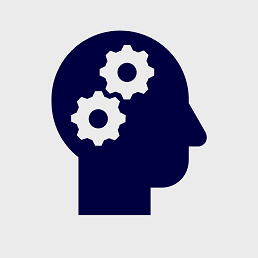Define artificial intelligence
Artificial Intelligence (AI) is increasingly prevalent in the software applications we use every day; including digital assistants in our homes and cellphones, automotive technology in the vehicles that take us to work, and smart productivity applications that help us do our jobs when we get there.
So what actually is artificial intelligence?
There are many definitions; some technical, some philosophical; but in general terms, we tend to think of AI as software that exhibits one or more human-like capabilities, as shown in the following table:
| Capability | Description |
|---|---|
 |
Visual perception - The ability to use computer vision capabilities to accept, interpret, and process input from images, video streams, and live cameras. |
 |
Text analysis and conversation - The ability to use natural language processing (NLP) to not only "read", but also generate realistic responses and extract semantic meaning from text. |
 |
Speech - The ability to recognize speech as input and synthesize spoken output. The combination of speech capabilities together with the ability to apply NLP analysis of text enables a form of human-compute interaction that's become known as conversational AI, in which users can interact with AI agents (usually referred to as bots) in much the same way they would with another human. |
 |
Decision making - The ability to use past experience and learned correlations to assess situations and take appropriate actions. For example, recognizing anomalies in sensor readings and taking automated action to prevent failure or system damage. |
These kinds of capabilities are increasingly within the reach of everyday software applications, helping make them more intuitive and useful in a wide variety of scenarios that previously existed only in the realms of science fiction.